Search Results
Showing results 201 to 220 of 626
Any Year Calendars
Source Institutions
This PDF contains 12 calendars (12 months). Each month contains activities about math. Things to do on familiar holidays (like July 4), less common holidays (like Backward Day), and any day.
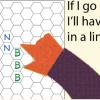
Four in a Line
Source Institutions
This strategy game has simple rules but can be a challenge. Players start with an empty hexagonal grid. On each turn, a player initials one empty hexagon on the grid.

Make a Dinosaur
Source Institutions
In this activity, learners explore the size and scale of dinosaurs. Learners listen to "Dinosaurs, Dinosaurs" by Byron Barton to understand some background information about dinosaurs.

How the Rubber Meets the Road
Source Institutions
In this activity, learners explore how engineers design tire treads to increase safety and reliability.
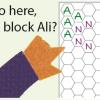
Touch and Go
Source Institutions
As learners play this game, they develop logic, geometry, and spatial visualization skills. Players start out with an empty hexagonal grid.

Push It Out
Source Institutions
In this physics related activity which requires adult supervision, learners make their own powerful water rocket and, with it, explore Newton's Third Law of Motion.
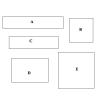
Geometry and Spatial Relations: It's a Perfect Fit
Source Institutions
In this three-part math activity, learners explore shapes. In part one, learners identify, describe, and classify two-dimensional shapes.

Mix It Up
Source Institutions
In this math lesson, learners are introduced to proportional reasoning through modeling, sharing, and questioning techniques.

New Boxes from Old
Source Institutions
Learners determine the surface area and volume of two identical boxes, and then figure out the dimensions of a cubical box with the same volume.
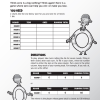
100 or Bust
Source Institutions
In this Cyberchase activity, learners play a game where zero can help them win--or make them lose! Learners roll the die and place a zero in the tens or ones place.
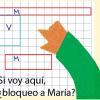
Doce a la Vez
Source Institutions
Jugando a este juego, los chicos desarrollan habilidades en área, perímetro, múltiples, y factores. Tomen turnos para hacer rectángulos con 12 cuadrados en la cuadrícula.

Exploring Tessellations (Grades K-2)
Source Institutions
In this activity, learners repeat patterns in two and three dimensions to create tessellations. This activity combines the creativity of an art project with the challenge of solving a puzzle.

Size Wheel
Source Institutions
In this fun sticker activity, learners will create a size wheel with images of objects of different size, from macroscopic scale (like an ant) to nanoscale (like DNA).
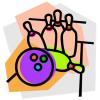
Strike 'em Down & Add 'em Up!
Source Institutions
In this activity, reuse two-liter bottles to create bowling pins. Learners practice math skills and develop a concept of verifying answers, while bowling and keeping score.

The Shadow Knows II
Source Institutions
In this activity, learners will measure the length of a shadow and use the distance from the equator to calculate the circumference of the earth.

Manufacturing Technologies: Making a Picture Frame
Source Institutions
Learners examine the manufacturing process while they make picture frames from cereal boxes.
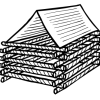
Three Little Pigs Construction Company
Source Institutions
In this activity about problem-solving, learners build a house for the Three Little Pigs using twenty straws and two index cards.

A Degrading Experience
Source Institutions
In this activity on page 27, learners perform an experiment to learn about how different types of marine debris degrade and how weather and sunlight affect the rate of degradation.

Mapping Greenhouse Gas Emissions Where You Live
Source Institutions
In this lesson plan, learners examine some of the of greenhouse gas emissions sources in their community.
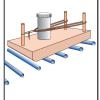
Newton Car
Source Institutions
In this activity, learners work in teams to investigate the relationship between mass, acceleration, and force as described in Newton's second law of motion.
